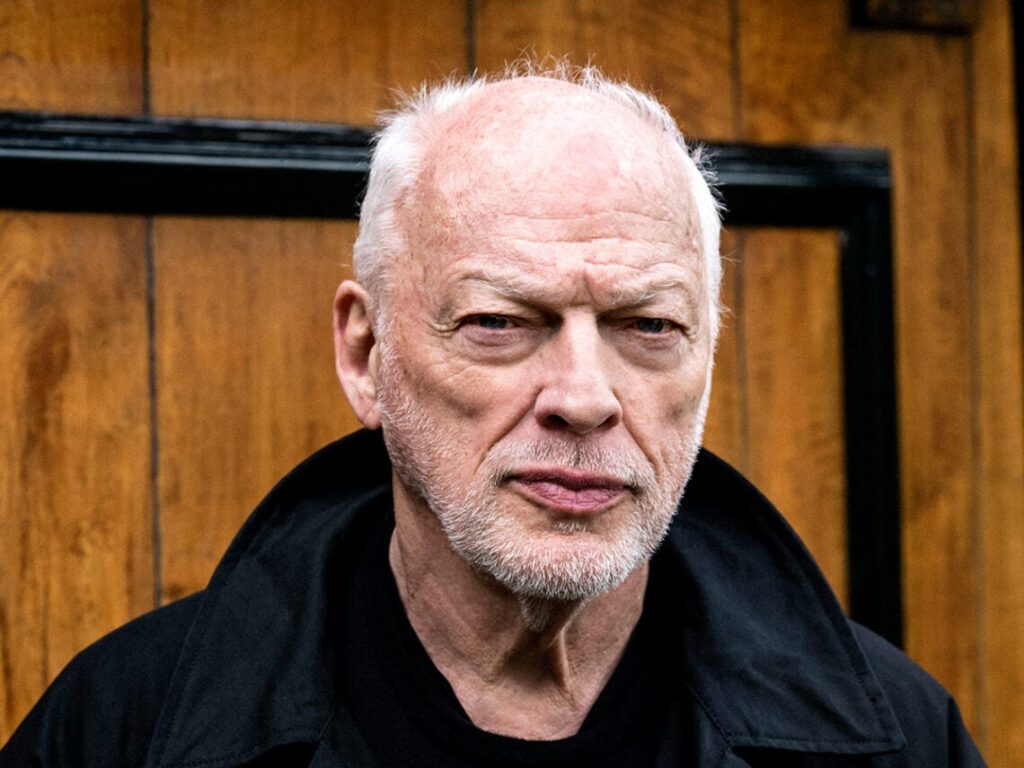David Gilmour was “bullied” into making final Pink Floyd album
 Posted On
Posted On
(Credits: Anton Corbjin)
Former Pink Floyd guitarist and vocalist David Gilmour has declared that he was “bullied” into making the final album with the band, 2014’s The Endless River.
Having arrived 20 years after the band’s previous swan song, The Division Bell, their final studio outing as a band received a lukewarm reception from fans and critics, who claimed that it was not up to scratch with the rest of their back catalogue.
The only members of the band to have contributed to recording sessions for The Endless River were Gilmour and drummer Nick Mason, with some archived recordings from keyboard player Richard Wright being used following his passing in 2008. Former bassist Roger Waters had previously left the band in 1985 after the release of their 12th album, The Final Cut, and did not return for sessions on their final outing.
In an interview with the Los Angeles Times, Gilmour explained that during recording sessions for The Division Bell, the band produced several hours of ambient material that was originally going to be compiled into an instrumental record, titled The Big Spliff, by the band’s engineer, Andy Jackson.
After the release of these recordings never came to fruition, Gilmour said that the record label were insistent on the recordings being released as an official album, in an effort to curb the sales of bootleg releases.
“My mistake, I suppose,” said Gilmour, “was in being bullied by the record company to have it out as a properly paid-for Pink Floyd record. It should have been clear what it was — it was never intended to be the follow-up to The Division Bell.”
The middling reception that the album received was not the way any members of the band had wished to say farewell to the project, and the release of the LP is still looked upon unflatteringly by Pink Floyd and their fans.
Gilmour has recently released Luck and Strange, his first album of solo material since 2015, and has been performing in cities around the world in support of the new record. Since the disbandment of Pink Floyd, Nick Mason formed his own group, Nick Mason’s Saucerful of Secrets; a supergroup featuring members of The Blockheads and The Orb that pays tribute to the early psychedelic material of Pink Floyd.
Roger Waters has continued to release music as a solo artist since his departure from the band, but has recently revisited material from Pink Floyd to create The Dark Side of the Moon Redux, a recreation of the band’s classic 1973 album in celebration of its 50th anniversary.
Why did Pink Floyd recently sell their back catalogue?
Pink Floyd recently also made headlines for having announced the £400 million sale of their music and likeness to Sony, reaching an agreement after several years of attempting to secure a deal.
Their reasons for agreeing to this were not publicly disclosed at first, though Gilmour did divulge some of the band’s thinking behind the acquisition of their back catalogue in the same interview with the Los Angeles Times.
“It’s history — it’s all past,” stated Gilmour. “This stuff is for future generations. I’m an old person. I’ve spent the last 40-odd years trying to fight the good fight against the forces of indolence and greed to do the best with our stuff that you can do.
With the guitarist approaching 80, he went on to explain how he wants his music to continue to have a legacy beyond his time on earth, and felt that leaving it in the hands of a trusted organisation was the best route to go down to secure this. He would also further expand by saying that he has not sold publishing rights.
“That’s a very different issue,” he explained, citing that there are many other agreements that have to be reached in terms of synchronisation deals for the future use of their music. “[Sony] bought the records, the recordings, and can do what they want. But if it comes on an advert, I’m not gonna give a shit.”
Pink Floyd are not the first act to agree on such a deal in recent years, and even some artists who are still active have opted to pursue this, especially those in the latter stages of their careers, with Bruce Springsteen and Bob Dylan among those who have reached agreements with record labels and publishing companies over the rights to their music.
[embedded content]
Related Topics


